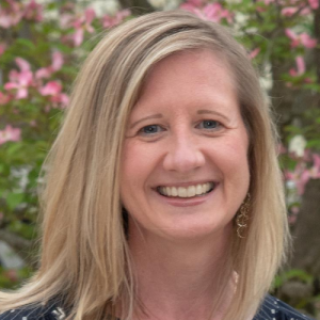My Love-Hate Relationship with the State of Preschool Yearbook Survey
October 5, 2018
Fall is a harbinger of so many things. For some, it’s the start of a new school year and the promise of new learning and skills. For others, it’s the start of football season and the possibility of the NY Giants making the playoffs (I know, I know…but a girl can dream, can’t she?) For many of us at NIEER, fall is the start of Yearbook season.
Yearbook season. The very words strike exhaustion into the brains of every early childhood state specialist. I know, because I used to be one.
Before coming to NIEER, I worked at the NJ Department of Education for almost 16 years. For 13 of those years, I was responsible for filling out NIEER’s State of Preschool yearbook survey…in triplicate. New Jersey is widely known for its Abbott pre-K program, but many don’t know we have two other state-funded preschool programs: The Early Launch to Learning Initiative, and Early Childhood Program Aid. Because of these three different programs, I completed three separate Yearbook surveys. Every year. For 13 years. (I feel you, Pennsylvania.)
When I was in elementary school, I remember having a visceral reaction to the Sunday Night Football theme song. To me, that 15-second jingle signaled the end of the weekend, and the start of the school week. At the NJDOE, I had a similar reaction to the annual NIEER email verifying my information as a contact for NJ’s Yearbook survey.
But while I didn’t always look forward to completing the survey (back in the day, it wasn’t web-based with fancy pre-population!), I also remember feeling grateful and proud each time the annual State of Preschool Yearbook was released. Proud, because the annual yearbook showcased our progress and quality from year to year. Grateful, because the Yearbook protected us more than once.
In a state known nationally for its groundbreaking state-funded preschool program, you’d think we had universal support for sustaining quality and growth of our early childhood programs. We did not. As in most states, competing priorities were a constant threat and, as a result, funding increases were questioned or even challenged almost annually. “Cost-savings” measures (larger class sizes, shorter days, access only for 4-year-olds) were proposed on multiple occasions.
In our fights to maintain quality and growth, my NJDOE colleagues and I always turned to the State of Preschool yearbook. We showcased New Jersey’s ranking among the best states in the nation for enrolling 3-year-olds, and how our low class size garnered one of NIEER’s coveted quality standards benchmarks. Demonstrating that such information was being looked at annually and tracked nationally helped reinforce the value of the state’s investment in high-quality preschool.
But we didn’t just use the yearbook as a line of defense. We used the data to promote and provide national context for our state preschool programs. Each time we applied for a Federal grant, we referenced our yearbook rankings across a variety factors, to show both where we excelled and where we needed to improve. Particularly in areas where NJ doesn’t rank well, we used that context to strengthen our application, by providing support for the goals we set.
So as we enter the 2018 Yearbook season, I challenge you to ask yourself this question: Do I give more to the yearbook than I get? While I certainly gave a lot of time to answering the yearbook survey each year, I believe New Jersey’s children got much more in return.
The deadline to submit the 2018 yearbook survey is October 30, 2018. If your state has not received an email with a link to your state’s survey, please contact NIEER at yearbook@nieer.org.
The Authors
Karin Garver is an Early Childhood Education Policy Specialist at NIEER. Her research interests are in national and state early education policy trends, inclusive opportunities for preschool children with disabilities, data systems, systems integration, and public program finance.
About NIEER
The National Institute for Early Education Research (NIEER) at the Graduate School of Education, Rutgers University, New Brunswick, NJ, conducts and disseminates independent research and analysis to inform early childhood education policy.

